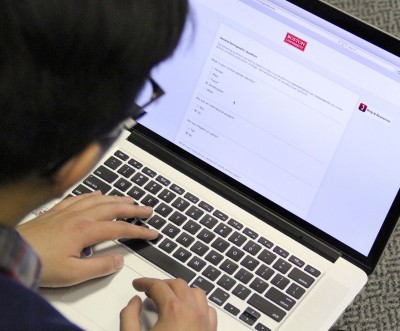
When the Boston University administration released a sexual misconduct climate survey on March 19, students were given the opportunity to share what they know about ways the university addresses sexual misconduct on campus.
Mia*, who had been part of a sexual harassment case against another female student, opened the email and took the survey expecting to see questions and scenarios reflecting her own situation, but as she delved further into the survey, she soon learned that would not be happening.
“That survey didn’t really apply to me. I thought there was a lot missing from it,” she said. “It was disappointing to see that sexual harassment wasn’t on there … There are a lot of different levels of sexual misconduct, and I thought that [the survey] didn’t really apply to all of them.”
Mia said many of the survey questions specifically portrayed sexual misconduct as physical “sexual violence.” The definition of misconduct in the survey missed situations such as inappropriate staring, gestures or comments, she said.
Dean of Students Kenneth Elmore said learning about students’ impressions of the prevalence of sexual assault on campus helps university officials improve the system and protect students.
“We hope what we can do with the survey information is to make sure we continue to improve our policies, our approaches to how we handle sexual misconduct and also how we address education and communication about the topic,” he said.
Steven Jarvi, the associate dean for student academic life in the College of Arts and Sciences, said based on results seen on other college campuses, the survey will have an impact at BU.
“I do think it will be effective,” he said. “It’s proven to be effective at other institutions, people that have done this, [and] the questions are well formulated, directions are clear. With anything like this, you hope for a robust response rate so that you’re basing your decision on the majority of responses and not individual responses.”
As of Tuesday, 1,025 of the 27,000 students who received the survey had completed it, BU spokesman Colin Riley said.
Along with Peter Fiedler, vice president of administrative services, Elmore chaired a task force made of faculty and staff from various schools, departments and organizations to create the survey. The group had been working on the survey since July 2014, he said.
Amie Grills, a clinical psychologist on the task force who works in the School of Education, said members focused on different sections of the survey and went over every question “item by item.”
“We just really wanted to make sure that we were phrasing the questions in a way that everyone felt was the most effective, and a way that would be clear, and then we kind of went through that process once,” she said.
About 200 students from various classes and organizations completed a pilot version of the survey to determine whether the language and questions were clear, concise and complete, Elmore said.
Maureen Mahoney, director of the Sexual Assault Response and Prevention Center, said the committee looked to other schools and groups to create a survey best fitted for BU.
“We really developed the survey in a way that we felt asked questions that would resonate with Boston University students and give us information specially about the climate here at BU,” she said.
BU opted out of a standardized nationwide sexual assault survey administered by the American Association of Universities to design its own survey that would be tailored to its population, The Daily Free Press reported on Jan. 22.
In 2014, BU was named one of 55 colleges and universities under investigation by the Department of Education’s Office for Civil Rights for mishandling sexual violence and harassment complaints, the FreeP reported on May 1, 2014.
Brown announced in a Feb. 23 email changes to university Title IX policies that aim to prevent discrimination by gender. They were updated to provide information about resources and outline disciplinary procedures.
While university officials express positivity about the survey’s impact, several BU students said they are not as confident that the survey will reveal or aid much in addressing the issue of sexual misconduct on campus.
“If I see [emails] from BU, I kind of throw them away usually. Obviously, there’s students that aren’t going to take it … so who knows how many people are actually taking it,” said Madison Montgomery, a sophomore in CAS.
Summer Garrard, a junior in the College of Communication, said she does not anticipate the survey inspiring a widespread change in how BU deals with sexual misconduct.
“I don’t think [the survey’s] going to do anything,” she said. “We already have the SARP center on campus. I’ve already seen some metamorphosis in the way that they handle that. I don’t think a survey thrown out to students that’s random and doesn’t have to be answered is going to make much of an impact.”
Mia said although there is room for improvement beyond the survey, she appreciates that the university is tackling the issue genuinely.
“It’s definitely good that BU is trying,” she said. “We do focus on sexual misconduct a lot as a community in a way that is helpful, but in order for progress to be made, there does have to be a few squeaky wheels.”
Mina Corpuz contributed to the reporting of this article.
*For purposes of confidentiality during on ongoing investigation, the name of this student has been changed.




















































































































